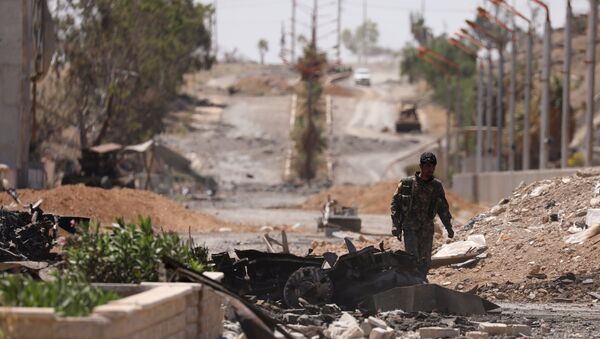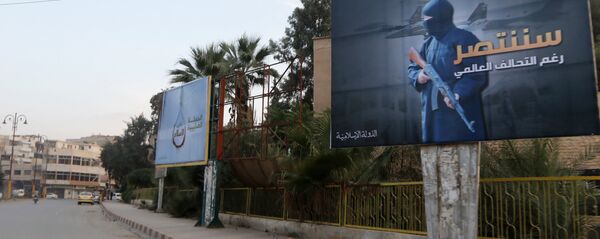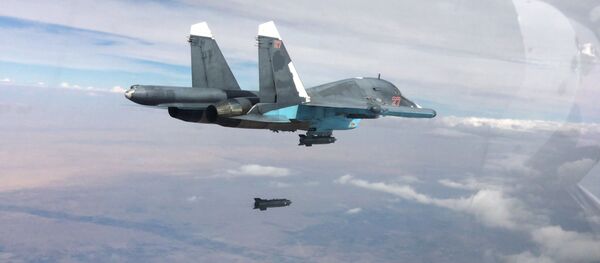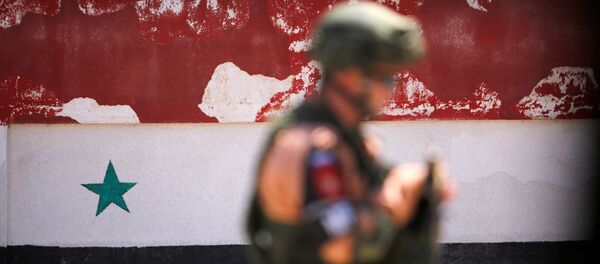The source added that the Russian military contingent in Syria has received several intelligence reports that Daesh had made a deal with units of the Kurdish-led Syrian Democratic Forces (SDF) operating outside Raqqa, under which militants would be allowed to leave the city unimpeded.
"Upon receiving this information, the command of the Russian contingent in Syria has taken measures to prevent the exodus of Daesh terrorists in the southern direction," the source said.
The military source added that Russian intelligence drones have set up a perimeter around the city to monitor possible terrorist escape routes, with combat aircraft and special forces units engaged in preventing militants' escape.
"Any attempts by Daesh militants to move toward Palmyra and to build up their forces there will be squashed," the source said.
On Friday, the aerial support of the Russian Air Forces helped the Syrian army to recapture the main road between the capital Damascus and Palmyra, for the first time since 2014. The highway has been completely cleared of terrorists.
Earlier in May, the Syrian government forces liberated al-Jarrah, Syrian Arab Air Force air base, located to the east of Aleppo, not far from the Asad reservoir of the Euphrates, along with a number of other settlements.
Meanwhile, the Kurdish-led SDF are being supported by the US. Reports suggest that on May 15 and 20, approximately 100 trucks crossed into Syria from northern Iraq using the Simelka border gate.
The convoys, which included armored vehicles, fuel tankers, heavy duty machines and containers loaded with arms and ammunition, first moved to Hassakah in northeastern Syria, then headed towards the Raqqa direction.
According to Turkish Daily Sabah, the group has obtained "US-made multiple rocket launcher pads, 80 and 120 millimeter mortars, MK19 grenade launchers, M4 Carbine and M16 infantry rifles, Humvee armored vehicles, Cougar armored personnel carriers and FGM-148 anti-tank missiles, which the U.S. refuses to supply to its NATO-ally Turkey despite repeated requests."
"The Kurds have their own interest and that is control over certain territories. In the long run, they are not particularly concerned about where the terrorists will go. What they are really concerned about is the territory they lay claims to," he told Russia's online newspaper Vzglyad.
The analyst however noted that it is hard to accuse the Kurds for setting up corridors for the militants as they might object that there were similar corridors, previously set up for the terrorists who were leaving Aleppo for Raqqa.
"It is more of a ping-pong: either we are banishing the terrorists in the direction of the Kurds, or they tried to do the same. Thus it is hard to blame the Kurds, the terrorists should be simply eliminated," he explained.
The expert noted that the eliminated group of terrorists was rather large and could have captured a city.
"The mistakes of the past have been taken into account. A very careful work has been done to prevent the re-capture of Palmyra, a very detailed reconnaissance and monitoring of the area. A detailed plan has been worked out in case of this or that scenario," he said.
It means that Russia's General Staff of the Armed Forces is well forecasting the developments and stays ahead. And this, in turn, demonstrates not only the growth of Russia's military prowess, but of its military-administrative expertise as well.





